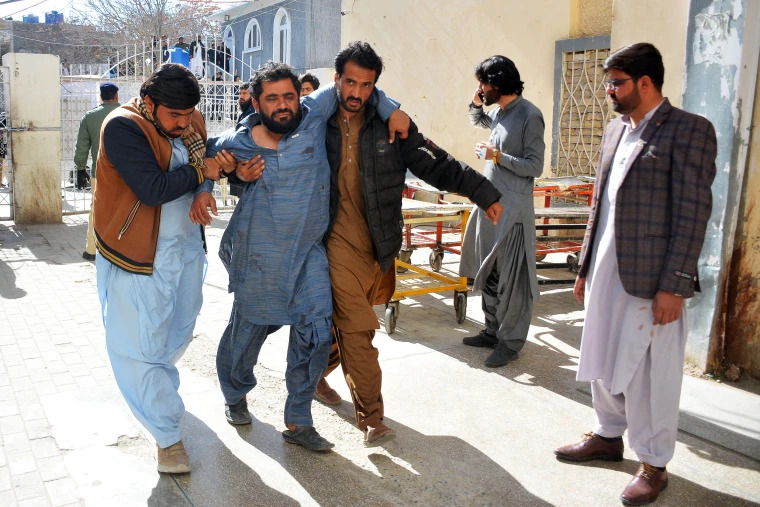This report is part of Dissent Today’s special series documenting violence and alleged irregularities during Pakistan’s 2024 general elections.
Balochistan, which is Pakistan’s largest province, is ironically its poorest. It remains a hotbed of violence and discontent. On the eve of Election Day on February 8, 2024, two bomb blasts killed at least 30 people and wounded dozens in Balochistan. A year has passed since then, but there has been no progress in the investigations into these incidents of election violence.
These two separate bomb explosions took place near candidates’ offices in Balochistan. The first blast occurred in Pishin district, killing 16 people and injuring 25, while the second explosion in Qila Saifullah claimed the lives of 12 people and left 20 wounded.
The Islamic State (IS) group claimed responsibility for both attacks, which were carried out using motorbikes rigged with explosives. The explosions targeted an independent candidate’s office and a JUI-F party election office, causing widespread destruction and chaos.
Balochistan, a resource-rich but impoverished province, has a history of violence and has been plagued by a decades-long struggle for greater autonomy. Islamist militants, including the Pakistani Taliban (TTP), operate in the region, often exploiting the sense of frustration and disillusionment among local voters.
As the province conducted elections last February like the rest of the country, many voters in Balochistan felt neglected by the country’s political parties and often felt candidates were imposed on them without any connection to the province. The vote was seen as unfair by many, with some describing it as a “selection” rather than a genuine election.
“In Balochistan, people are no longer interested in elections or politics,” says Muhammad Ramzan, 36, a professor at a local university in Quetta. “We know the affairs of the province are controlled from the army headquarters, which is why it is pointless to vote,” he added.
The depoliticization of the youth was a key aspect that emerged during our interviews with students and professors at educational institutions in Quetta during a recent visit. The people of the province seem oblivious to the power games that are covered by the mainstream media day in and day out. Violence, unrest, and the never-ending war are what concern them, yet the mainstream media pays little attention to these issues facing the province.
The writer is a member of the staff.

